To build an open and shared experimental practice platform, MSE's Experimental Center, in collaboration with the University Student Innovation and Entrepreneurship Base and MSE’s Students Affairs Office, carefully planned and organized a series of "AI + Robotics" hackathon events. The event was divided into two stages: an online theoretical training camp and offline practical development. The online theoretical training camp was conducted during the winter vacation and attracted over a hundred undergraduate students to participate. With the support of relevant open-source communities, the offline practical session took place from March 22 to 23 in the Dong Yi Lou, where more than 30 undergraduate students engaged in an in-depth AI + Robotics practice.
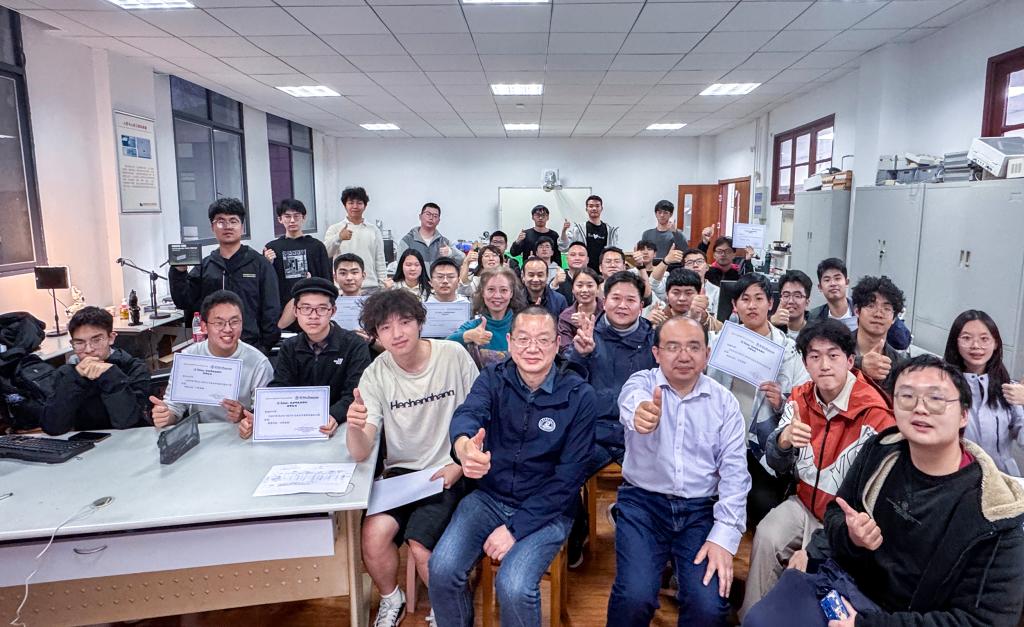
To begin, Associate Professor Chen Bing from National NC System Engineering Research Center of HUST briefly introduced the significance of the event and the schedule arrangements to the students. The students freely formed 6 teams, with team members assigning themselves different tasks such as product, hardware, software, testing, etc. Under the guidance of on-site teachers and corporate mentors, each team immediately dove into the practical work.
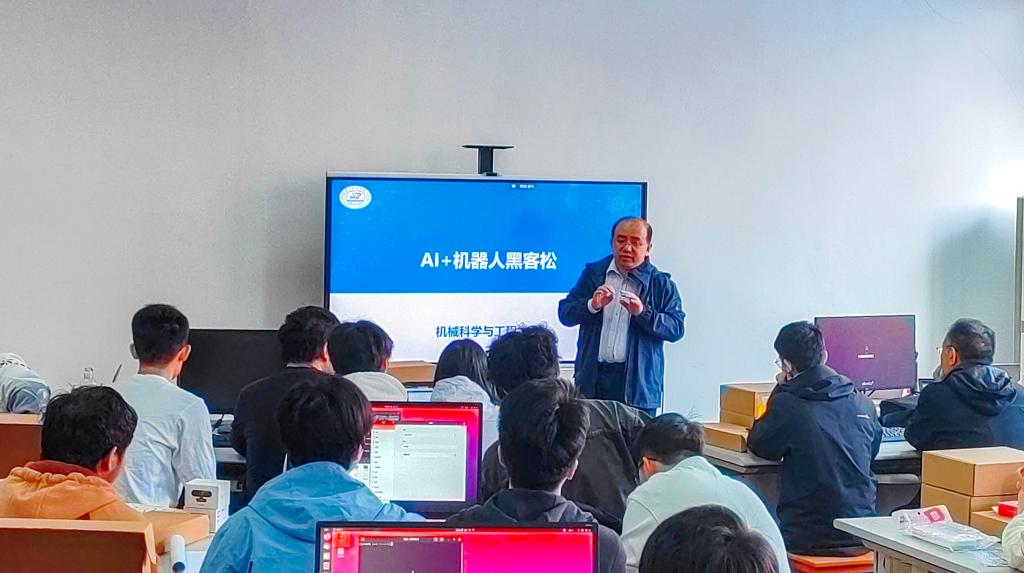
Each team went through the entire process of building embodied intelligent robot applications, from assembling the mechanical structure of the robot, calibrating sensors and motors, debugging circuits, and other hardware assembly and construction, to selecting scenarios, designing functions, setting up open-source machine learning framework environments, collecting robot + vision data, training cloud algorithms, deploying and validating models on edge devices, and conducting evaluations.
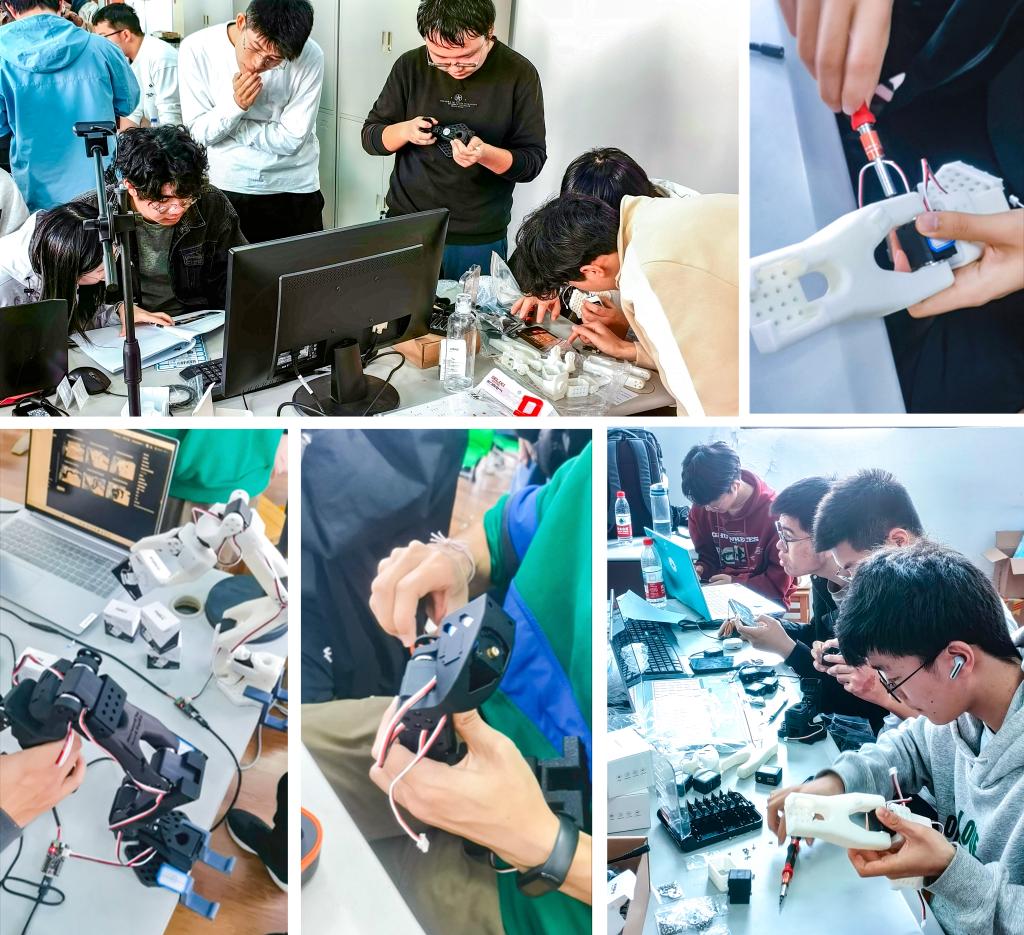
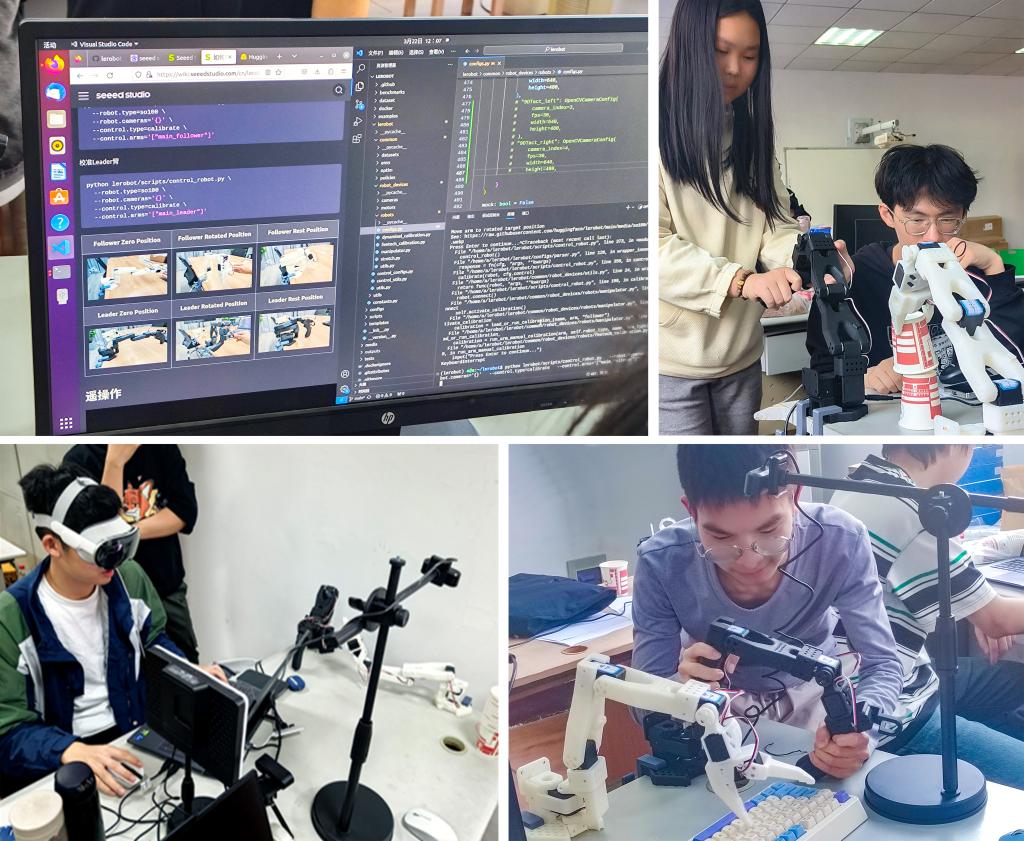
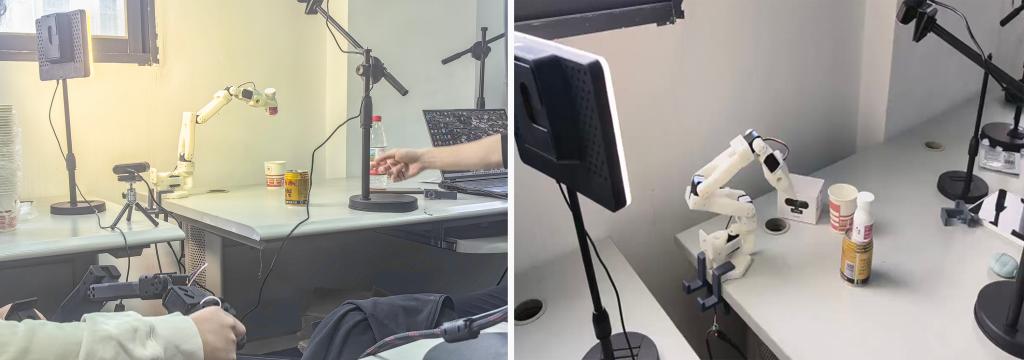
After battling for two days and nights, the 6 teams opened their minds and envisioned various application scenarios that were both interesting and practical. At the same time, they all completed the construction and training tasks of the embodied intelligent robots for their designated scenarios, with cheers of success from the students often heard on-site. Afterward, they took their self-developed and trained embodied intelligent robots on stage for demonstrations. A panel of judges consisting of teachers from MSE and corporate mentors provided comments and scores for each team, with 3 teams standing out and being awarded excellent certificates and prizes.
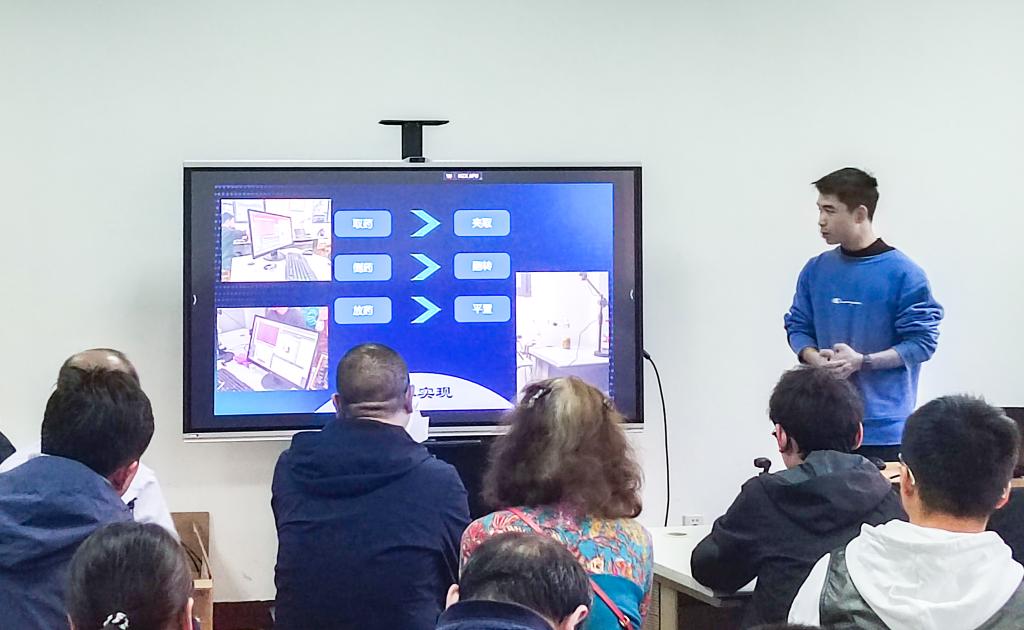
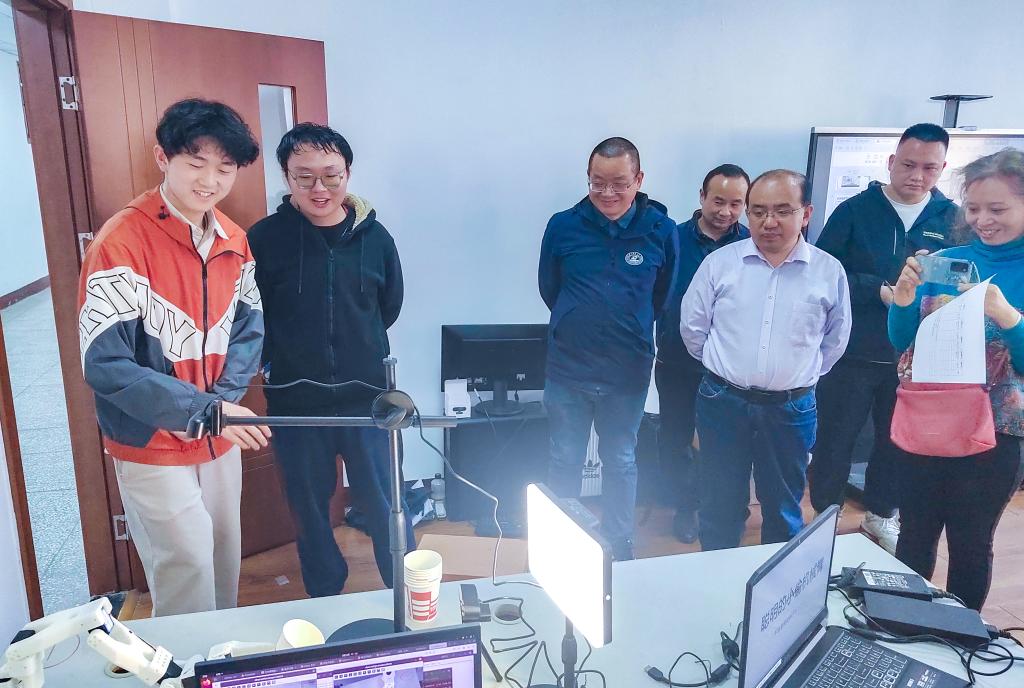
The students all expressed that such activities greatly benefited them. The complete practice process allowed them to experience the charm of combining AI with mechanical engineering, greatly stimulating their interest in learning and research. MSE's Experimental Center will also gradually create a systematic and open practice space for students, providing a platform for more students to explore and learn outside of class.